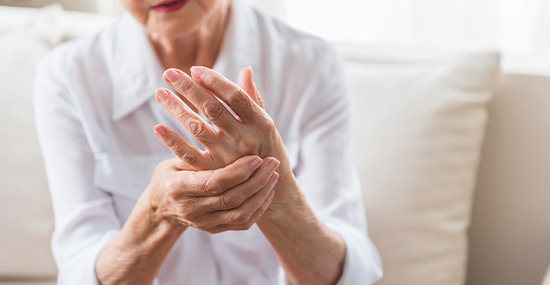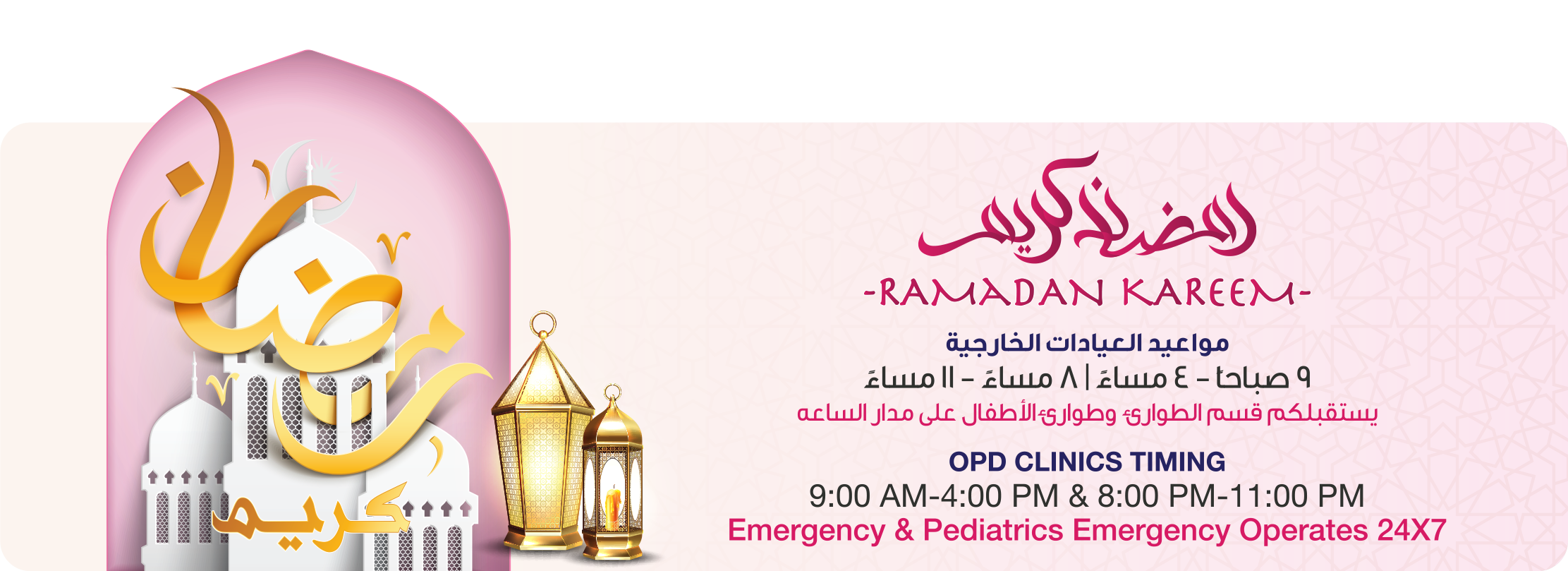Status message
Urology
The University Hospital of Sharjah is a haven for experienced Urologists in the field. Our specialists are well versed in Surgeries and they have commendable knowledge of other medical areas such as internal medicine and gynecology. Most of the specialists are certified by the American Urological Association (AUA). Our Urology experts specialize primarily in- Treatment of prostatic diseases with either infection or tumor using laser and endoscopy, treatment of female urinary incontinence, specialist male health clinic using the most recent methods of treatment and treatment of all urinary tract stones using shock wave and finally laser management of all urinary tract tumors.
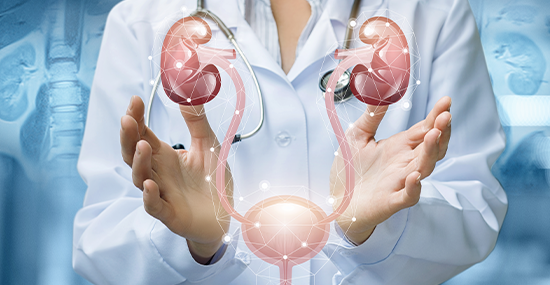
Spine Surgery
Best hospital for Spine Surgery in the UAE
The spine or backbone is the fundamental support structure for the body which helps connect different components of the musculoskeletal system along with helping with movements like standing, sitting, bending, walking and twisting. The spine has a curvy structure that helps protect the body from shock and injury and comprises nerves, bones, discs and the spinal cord. Back injuries and spinal cord issues can harm the spine, resulting in back pain and other problems.
UHS is the top spine surgery hospital in the UAE, offering sophisticated and world-class spine surgery services to help patients suffering from a broad range of spine-related issues. All spinal issues are treated endoscopically less than 1 cm incision. Our medical team consists of highly experience spine surgeons from South Korea alongside other medical experts in pain management, physiotherapy and more.
Scope of Spine Surgery at UHS
Vested with world-class amenities, the spine surgery department at University Hospital Sharjah provides the cure and management of a wide array of spinal disorders by UHS utilizing the world’s best technology to execute spine surgeries.
Herniated Lumbar Disc
The cartilage pillow tissues in the middle of the lumbar vertebrae contain a firm lining known as the annulus fibrosis, also referred to as a disc. When this disc dislocates outwardly between the two vertebrae, it is called a herniated disc. Its symptoms include weakness in the legs and feet, pain in the legs and lower back. A herniated disc requires surgery if its condition does not get better through exercise and medication.
Herniated Cervical Disc
The bulging of the pillow tissues between the vertebrae is called a Cervical disc herniation with early symptoms like neck pain, arm pain, stiffness, nausea, dizziness, tingling sensations, weakness in the hands, loss of strength in arms and legs, balance dysfunction, trouble in walking as well as urine incontinence. A patient with herniated cervical disc might require surgery if the symptoms persist despite medication.
Lumbar Spinal Stenosis
When the quantity of fluid between the vertebrae reduces, it causes Lumbar Spinal Stenosis. It hardens the discs, shifting them in the direction of the spinal canal. The facet joints present between the vertebrae might undergo the same issue constricting the canal structure. It pressurizes the nerve root generating symptoms like pain in the back, legs and numbing sensations. After evaluating the condition, surgery could be prescribed for decompression- to make space for the spinal cord and nerve roots. It helps alleviate pain caused by nerve inflammation, improve motor strength in arms and legs and replenish the lost sensations in the arms/ legs.
Spinal Trauma
Spinal Trauma could happen due to several factors ranging from falls, accidents, bumps, lifting heavy loads, etc. Conditions as severe as vertebrae fractured and slip discs might occur. Surgery becomes imperative to treat Spinal Trauma if it requires the removal of bone shards, foreign objects or fixing fractured-vertebrae causing compression to the spine. The objective of surgery post-Spinal Trauma is often to reinstate spinal stability to inhibit the appearance of pain or deformity in the future.
Scoliosis
Scoliosis, also called Spinal Curvature, is likely to occur at an early age- before the age of ten and can grow further with physical development, causing a sideways curvature in the spine. It has a high probability of occurrence among patients with cerebral palsy and muscular dystrophy.
Some of the symptoms of scoliosis-
- Humping appearance in the back while bending.
- Unequal shoulder height.
- The imbalanced proportion between legs and torso.
- The sideways posture of the rear or waist.
Generally, scoliosis cases are mild, but in some cases, the magnitude of the curvature increases with age among children. The severity of scoliosis can even cause disability and inhibit the proper functioning of the lungs as it might contract the space in the chest, hence requiring consistent monitoring to check the worsening of the curve. A brace can help stop the curve from intensifying in mild cases, whereas severe cases might require spine surgery to rectify the spinal structure.
Why choose UHS for Spine surgery?
UHS is a JCI accredited hospital offering distinguished spine surgery services amidst sophisticated and patient-friendly amenities. The Spine surgery specialty at UHS is vested with erudite spine surgeons that are experts at some of the most innovative spine surgery practices. Our goal is to help patients swiftly alleviate their spine-related ailments with minimal pain.
Endoscopic laminectomy
Lumbar endoscopic laminectomy is a minimally invasive surgery that helps decompress the spinal canal in the lower spine area. In contrast to the open or microscopic lumbar laminectomy, it is a modern procedure that involves making small incisions (less than 1cm) and decompress spinal canal and extracting the damaged part of the disc. It reduces the pressure built on the spinal cord. There is no removal of any bone or muscle during the procedure, unlike open or microscopic surgery.
Lumbar endoscopic laminectomy is feasible for patients with the following symptoms:
- Pain in legs for over six weeks.
- A visible herniated disc in the MRI scan.
- Sciatica pain.
- The ineffectiveness of non-surgical treatments like steroids, Non- Steroid Anti-inflammatory drugs and physiotherapy.
Endoscopic fusion Surgery
Spinal fusion surgery helps connect multiple vertebrae into a single structure. Its objective is to halt movement between the bones to stop back pain. Spinal fusion assists in joining two or more vertebrae into a single structure to prevent pain caused by mobility. The infused vertebrae inhibit the patient from stretching the adjacent nerves, muscles and ligaments, preventing discomfort. The professional and learned team of doctors at the UHS spine surgery department examine the patient and only prescribe fusion surgery after ruling out all non-surgical treatments. Spinal fusion can help relieve back pain in case of:
- Degenerative disk disease
- Fracture in the spinal cord
- Scoliosis
- Narrowing of the spinal canal- Spinal stenosis
- Infection or tumours in the spine
- Spondylolisthesis
Lumbar discectomy is not fit for all treatment for all backpain issues or the condition of a herniated disc. Our doctors conduct an exhaustive examination of patients and advise the surgery only if required. UHS spine team use only 1 cm hole for fusion surgery, it preserves skin and muscle, can return to normal life within a week cosmetically superior than microscopic or open surgery.
Transforaminal Percutaneous Endoscopic Lumbar Discectomy
It is a revolutionary spine surgery method to treat herniated lumbar disk by decompressing the lumbar disc space to remove the nucleus pulposus using a posterolateral approach. PELD is the minimally invasive spine surgery technique implemented to ablate the herniated part of the lumbar disc. It is advisable for patients with a non-sequestrated lumbar disk hernia with an intact dorsal longitudinal ligament. This technique preserves 100% posterior back muscle only use small hole on the flank.
The procedure of PELD requires local anesthesia. Considering its sophisticated nature, it holds an edge over other surgical techniques such as:
- Minimal paraspinal muscle trauma.
- No damage to the facet joint.
- The small surgical wound reduces post-surgery complications.
- Patients are allowed to go home much sooner than other spine surgery procedures.
Artificial Disc Replacement Surgeries
Also known as lumbar disk replacement surgery, artificial disc replacement surgery involves replacing a damaged or degenerated disk in the lower area of the spine with an artificial disk. The disk could be composed of metal or both plastic and metal.
The primary reason for conducting an artificial disk replacement surgery is to remedy backache. Our skilled and experienced team of doctors conduct some tests on the causes of back pain to determine whether Artificial Disk Replacement is the suitable treatment for you. Listed below are some of the conditions that make lumbar disk replacement surgery a feasible option-
- Either 1 or 2 disks in the lower spine area are the source of pain.
- Absence of any joint disease or compression of the spinal nerves.
- The patient is not obese.
- No history of spinal surgery.
- The patient must not suffer from spinal deformities like scoliosis.
Artificial disk replacement involves making an incision in the abdomen. The surgeons move the organs and blood vessels to access the spine and execute the procedure. It is major surgery and requires a hospital stay post-surgery.
Cervical Artificial Disc Replacement
Also known as Cervical Disk Arthroplasty, it is a replacement surgery to help patients suffering from cervical disk disease alleviate pain and facilitate mobility. Discs tend to become weak with age. They crack up in the outer portion, resulting in degenerative disk disease. It is a painful condition caused by pressure built by the bulging of the inner portion against the outer area.
The surgeon makes a small cut in front of the neck to expose the spine and then removes the worn-out disc and implants the artificial disc.
- The procedure helps maintain the motility of the spine and neck.
- It inhibits the development of degenerative disc disease among the adjoining segments.
- It inhibits complications and concerns related to the requirement for bone grafting and spinal instrumentation involved in spinal fusion.
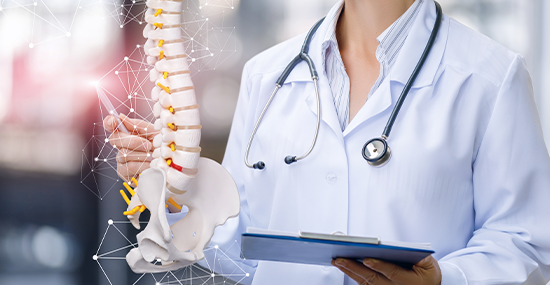
Speech Therapy
UHS has an eminent Speech Therapy Department led by experienced Doctors. The Speech therapists of UHS are known for using sophisticated equipment and procedures to treat the patients. The areas covered by them are Voice Disorders, Dysphasia, Neurological Speech and Language Disorders, Resonance Disorders (Craniofacial Anomalies (CFA), Cleft Lip and Palate), Speech and Language Problems Related to Hearing Loss, Fluency Disorders (Stuttering and Cluttering), Articulation Disorders and Receptive & Expressive Language Disorders

Sharjah Fertility Center
Infertility treatment by the best and most trusted in the UAE
A man, woman or couple is considered infertile when unable to conceive a baby after one whole year of trying. However, it’s never too late with Sharjah Fertility Center! Infertility in men can be caused by different factors such as number of sperm (concentration), motility (movement), and morphology (shape). A semen analysis helps determine how male factors are contributing to infertility, however, slightly abnormal semen analysis does not mean one is necessarily infertile. In addition, Infertility in women can be caused by different factors such as age, problems with ovulation, damaged fallopian tubes, abnormalities of the cervix or uterus and premature menopause.
Harnessing the expertise and experience of fertility specialists, the Sharjah Fertility Center at University Hospital Sharjah has helped numerous families to grow. Our capable and up to date team of expert doctors assist patients by analyzing their condition based on physical, environmental and hereditary factors. After diagnosis, we advise the most effective and suitable treatment mechanism out of surgery, medicine, procedures based on Assisted Reproductive Technologies (ART) and many more. An infertility evaluation includes exams and tests to find reasons behind couples infertility. If a cause is found, treatment is possible. Although many cases in Sharjah Fertility Centre were successfully treated with no cause found.
Our all-encompassing range of services makes us the best fertility services centre in the UAE. Sharjah Fertility Centre does not stand alone when infertility evaluation is conducted, we collaborate with correlating departments to conclude a precise perspective such as Diabetes and Endocrinology; as the presence of diabetes complications significantly reduces fertility rates, Obstetrics and Gynecology Department; to increase chances of reproductive health and help with women overall health, Urology and Nephrology Departments; to analyze the patient's semen sample, perform genetic testing, test the patient's hormones and avoid kidney injury and Neonatology Pediatrics Department; to evaluate growth and development of children born after IVF treatment.
The scope of Sharjah Fertility Centre at UHS?
Female infertility
- Tubal disorders
Tubal disorders cause blockage in fallopian tubes due to uncured STI’s, complications arising out of unsafe abortions, complications post pelvic or abdominal surgery, postpartum sepsis, etc.
- Uterine disorders
Uterine disorders can cause infertility and can be congenital (a septate uterus) and benign. Bening uterine complications include fibroids, polyps, adenomyosis, endometriosis etc.
- Ovarian disorders
Ovarian disorders like polycystic ovaries syndrome and follicular issues can cause infertility in women.
- Endocrine system disorders
A disorder in the endocrine system can destabilize the production of reproductive hormones. Issues like pituitary cancers and hypopituitarism can cause an imbalance in reproductive hormones, causing infertility.
Male infertility
- Hormonal disorders
Abnormal hormone production by the testicles, hypothalamus and pituitary glands can deregulate sperm production, causing infertility in men. The most common cause of such hormonal imbalance is cancer in pituitary glands or testicles.
- Clogged reproductive tract
Tracts such as seminal vehicles and ejaculatory ducts responsible for carrying semen get clogged due to injuries and infections in the genital tract. This obstruction could be responsible for infertility among men.
- Testicular failure
Varicoceles or medical procedures like chemotherapy might inhibit the ability to produce sperms in men causing infertility.
- Morphology and Motility
Abnormalities in the function or quality of sperm production can have negative implications on fertility among men.
Why choose UHS for fertility related concerns?
Fertility Center in Sharjah is vested with a team of specialist fertility doctors who help patients with concerns like female and male infertility through an array of modern reproductive technologies like Assisted Reproductive Technologies (ART)- IVF and ICSI. As a leading fertility diagnostic and cure centre, our specialities include- High-risk pregnancy, PCOS, Endometrial Receptivity & implantation failure, immunological infertility, PGD/PGS and more. Our skilled doctors also cater to sensitive cases like preserving fertility among cancer patients and patients responding poorly to IVF. As the top and most trusted fertility centres in the UAE, the main objective of UHS is to attain successful and healthy pregnancy and ultimately a healthy birth for both mother and child. Through empathy and compassion, our experts take parents through all possibilities of a successful IVF cycle by paying heed to the factors of age, complications and protocols. Listed below are our elaborate fertility speciality services:
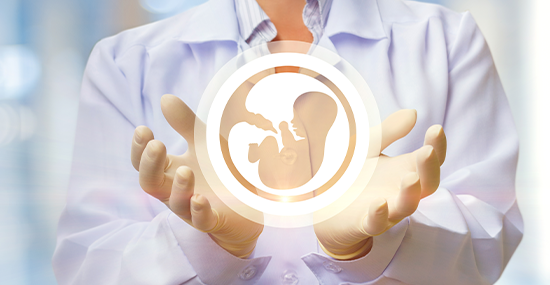
Rheumatology
University of Sharjah (UHS) is the best Rheumatology hospital. The department is known for its committed and experienced Rheumatologists. Our Rheumatologists specialize in Joints Pain and Arthritis and Rheumatoid Arthritis, All Inflammatory Arthritis including Psoriatic Arthritis, Osteoarthritis, Connective Tissue Disease such as SLE, Myositis, Sjogren’s and Scleroderma, Vasculitis, Osteoporosis and Bone Diseases, Spondylitis, Gout, Musculoskeletal Pain and Fibromyalgia, and Rheumatic Autoimmune Disease
